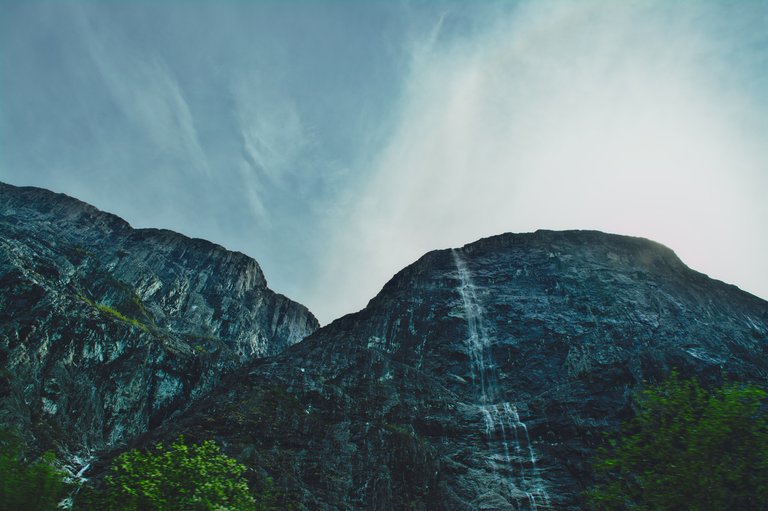Recently I watched a documentary which is based on a similarly named book - as on the headline - by an economist Thomas Piketty. I was highly intrigued by it and I would highly recommend anyone to watch it as I feel it is an extremely important piece to understand our current economic situation and its broader consequences. The following is some of my personal ponderings that have been inspired by the aforementioned documentary.

I have paid attention to the large economic forces and the trend is that younger generations are earning less, meanwhile the abundantly rich are getting richer and the middle class is shrinking, more in the US, less in the Europe, but the trend is apparent here in Finland, too, and has been a topic of concern. If the situation gets polarized enough, social distress will raise head and take form in an extremist political movements, which are fuelled even further by the algorithms of social media platforms that give each user their personal truth - whatever it is they want. All the platform cares is to capitilize on the attention of the user.
When people are distressed they look for someone to blame, often it is whatever superficial difference that strikes up first - like skin color. People don't realize that those on top of the tower with massive wealth are happy to have people fighting against each other because it takes the attention away from them.
There's an argument that markets should take care of themselves and it's not a problem if there are some mega rich people, because the up tide of increased productivity will lift all boats, not only those with capital. This is sort of true, however, there is a danger for slippery slope, because human greed often takes over of those who get money, and with money comes power which is used to extract even more wealth from the bottom.
Greed isn't the only problem. You see, the mind twists one's large wealth to be only because of personal ability even when they had a clear advantage attributed to them by the game (as was demonstrated by the Monopoly game experiment on the documentary: two players with the other having double the starting money than the underdog, and two dices to the one that the underdog has).
The more wealth one has, the less likely one is willing to share it with others. The billions of dollars - all of them are just because of personal ability, they deserve them. What deserves and what, I don't know, but the heightened sense of self-attribution creates segregation between those with massive wealth and those without much. It is unfortunate this happens, because the social distresses that results because of the economical polarization, is in the end just a personal illusion of "this is all because of my personal ability". It is an extremely egocentric way to look at it, since it completely disregards that they are existing in a world where the rules have allowed this massive accumulation of wealth in the first place. Yet, it is typical human way to think - and going into psychology, maybe a defense by the psyche to create a consistent narrative on the events, to avoid cognitive dissonance; it is easier to justify your bigger wealth by attributing it to yourself only. It becomes uncomfortable when you realize that some of your own well-being and wealth might be a result of some good cards you were dealt with by random. Thus, it becomes harder to justify why you are better off than someone else - unless they are just less valuable as people. In India they have solved this cognitive dissonance using karma: "that guy has no legs, he must've been a shitty person in his previous life".
The lengths we go at attempting to project our consistent narratives out to the world is outstanding.

Your post has been voted as a part of Encouragement program. Keep up the good work!
Try https://ecency.com and Earn Points in every action (being online, posting, commenting, reblog, vote and more).
Boost your earnings, double reward, double fun! 😉
Support Ecency, in our mission:
Ecency: https://ecency.com/proposals/141
Hivesigner: Vote for Proposal
i think the result will be corporations tightening their grips around resources and things necessary for dominance (5G, information etc.) and basically just eating most governments alive. Basically Amazon and Google and Pandaland are going to suffocate and fight over the remains of Western democracies.
The best outcome I can imagine is that social movements and crypto and new ideas lead to a new kind of decentralized society in South America and Africa and set a new example for us in "the first world".
Actually I think the nations of the future will include things like Hive and Facebook and BLM and whatever else on the other side
Corporacy doesn't sound too good of an outcome... A proposed solution for the Facebooks and such increased power I heard could be some kind of taxation of information, so that there would be a cost for holding it, though I can't see how that could be implemented since they can already evade taxes. There probably needs to be a decentralized solution for that too. The country taxation system is becoming archaic especially for global corporations who can evade them anyway.
Posted using Dapplr
Yeah it’s pretty absurd that regular citizens pay taxes on their income while the biggest companies don’t and the richest individuals earn most of their money from their money growing money.
Andrew Yang talks about those kind of taxes to fund UBI. I love the intention of UBI but I don’t know how you prevent inflation (though UBi would certainly be better than this endless printing of money without UBI) and I don’t know if we should all get used to relying on institutions for our well-being.
I don’t know but I feel something better will arise out of the chaos where we least expect it.
Crikey if we're making documentaries about Pikkety's work capitalism really is in trouble!
I wasn't familiar with him, but you seem so?
Posted using Dapplr
I can't claim to have read anything by him, but I know the general gist of arguments - he's firmly in the Paul Krugman/ Joseph Stiglitz 'neoliberalism is bad capitalism because it's created huge inequalities and what we need is more social democracy, i.e. capital regulation.'
It wouldn't surprise me if that documentary pointed to Finland (or 'Scandinavia' in general) as something of a model for how to make capitalism successful.
That's usually the narrative.
I'm inclined to agree, but generalising what you've got in those countries to somewhere like Nigeria with 20 times the population, that's the challenge!
Happy 2021. It is nice to see that someone is still here. It seems that most of people I follow are no longer active. That is weird I imagined that during covid this place would be more active than ever.
Happy 2021 for you too. Still here, trying to post every once in a while.
Posted using Dapplr
Gracias @ celestal
La riqueza el éxito estan mediados por nuestras creencias y esquemas, cambiarlas es posible
Congratulations @celestal! You have completed the following achievement on the Hive blockchain and have been rewarded with new badge(s) :
You can view your badges on your board and compare yourself to others in the Ranking
If you no longer want to receive notifications, reply to this comment with the word
STOP